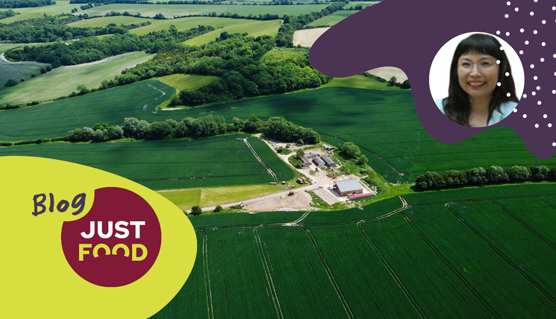
© Just food
Despite substantial focus on sustainability issues in both science and politics, humanity remains on predominantly unsustainable development trajectories. Societies are increasingly operating outside safe planetary boundaries partly due to the failure of sustainability science to engage with the root causes of unsustainable developments.
Peatlands are drained for agriculture, forestry, and peat extraction, thus emitting large amount of greenhouse gases that advance climate change as well as contributing to biodiversity loss, nutrients flow to ground and surface water, flood risks, land loss and subsidence.
The Dasgupta Review calls for changes in how we think, act, and measure economic success to protect and enhance our prosperity and the natural world. We have collectively failed to engage with Nature sustainably whereby our unsustainable engagement with Nature is endangering the prosperity of current and future generations. The transformative change needed requires sustained commitment from actors at all levels in choosing the sustainable pathways.
Involvement of actors from outside academia into the research process is one key aspect
The Just Food living lab focuses on transformational ‘sustainability intervention’ by rethinking how knowledge is created and used in pursuit of sustainability. Living labs have become a state-of-the-art approach to research and innovation across several domains, including agriculture.
Two essential elements comprise the dimensions on which agricultural living labs are based: the innovation process and the actors involved. The involvement of actors from outside academia into the research process is one key aspect of sustainability science to integrate the best available knowledge, reconcile values and preferences as well as to create ownership for problems and solution options.
Transdisciplinary, community-based, interactive, or participatory research approaches are often suggested as appropriate means to meet both the requirements posed by real-world problems as well as the goals of sustainability science as a transformational scientific field.
The conditions for transdisciplinary research are given when knowledge about a socially relevant problem field is uncertain (the use of peatlands for food production), when the concrete nature of problems is in dispute (food production versus climate change mitigation), and when there is a great deal involved (climate change, just transition, sustainability) for those concerned by these problems.
Transdisciplinary research copes with such problem fields in a process that integrates a variety of disciplines and actors from public agencies, civil society, and the private sector to identify and analyse problems with the aim of developing knowledge and practices that promote what is perceived to be the common good.
Living lab for co-creating policy measures and shared understanding between actors in the food system
Living labs are designed to address complex societal issues involving diverse stakeholders from different backgrounds and disciplines. The Just Food living lab is co-creating policy measures from both the public and private sectors as well as developing shared understanding between relevant actors in the food system to significantly reduce greenhouse gas emissions from agricultural peatlands in Finland.
The stakeholders of the living lab include farmers, local community, scientists, government representatives, private companies, non-governmental organisations, and consumers. The innovation process is co-creation with multi-method approach along with multi-stakeholder participation and active stakeholder involvement in a real-life setting.
Transdisciplinary work is used for food system transformation to produce three principal outcomes for the food system:
- Food and nutrition security
- Livelihoods and fair income
- Environmental sustainability together with climate change mitigation.
The use of organic soils in food production is a complex and politically driven issue and can only be addressed through interventions that account for local, regional, and national needs. The living lab can help to understand and identify the leverage points to generate the transformative and system-wide change.
Ellen Huan-Niemi, Senior Scientist, Natural Resources Institute Finland (Luke)
More information on the Just Food living lab.